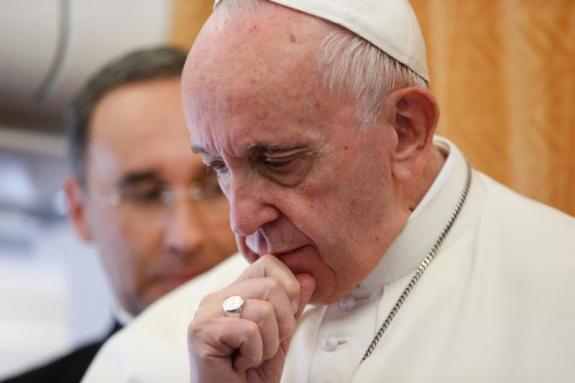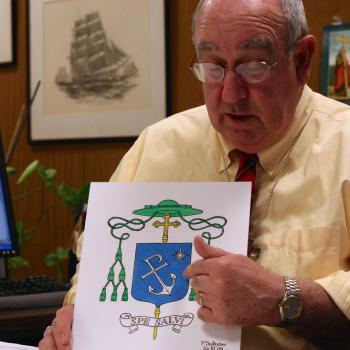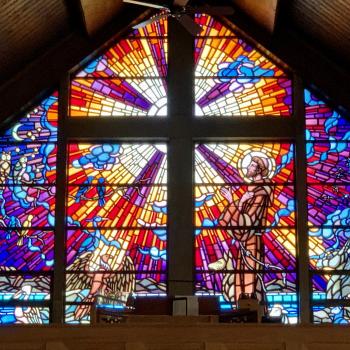From his flight home today:
The commission Pope Francis appointed to study the history and identity of women deacons did not reach a unanimous conclusion about whether deaconesses in the early church were “ordained” or formally “blessed,” the pope said.
“What is fundamental is that there was no certainty that there was an ordination with the same form and same aim as the ordination of men,” the pope told reporters flying with him from North Macedonia to Rome May 7.
Pope Francis spent just under half an hour on the short flight answering questions, including about the study of women deacons he commissioned.
After the six men and six women scholars on the commission finished their work, he said, there was “some agreement,” but not on the crucial question of whether women were ordained or solemnly blessed like abbesses are.
“Some say there are doubts,” the pope said. “Well, then, let’s study some more. I don’t have a problem with that.”
The pope did not tell reporters what steps, if any, would come next.
AP adds:
The result will likely be a blow to proponents of ordaining female deacons today, as well as the umbrella association of religious sisters which had asked Francis to create a commission to study the issue in 2016.
Francis said nothing Tuesday about how or whether the commission results might influence any decision going forward. He said members of the commission were continuing to study the issue on their own.
Stay tuned.
UPDATE: Leave it to Father Z to post a fuller transcript of the plane presser.
Snip, regarding the commission:
They worked together and were in agreement until a certain point. But each of them then has her own view that does not agree with that of the others. And there they stopped as a commission and each is studying [how] to go forward.For the female diaconate, there is a way to imagine it with a different view from the male diaconate. For example, the formulas of female deacon ordination found until now, according to the commission, are not the same for the ordination of a male deacon and are more similar to what today would be the abbatial blessing of an abbess. This is the answer of some of them. I’m speaking a little from the ear, from memory.Others say that it is a female deacon formula, but they argue that it is not clear. There were female deacons, but was it a sacramental ordination or not? And that is discussed, it is not clear. That they helped in liturgy, in Baptisms by immersion, when the woman was baptized the deaconesses helped, also for [unclear] the woman’s body. Then a document came out where diaconesses were called by the bishop when there was a matrimonial argument for the dissolution of the marriage or divorce or separation. When the woman accused her husband of beating her and the bishop called the deaconesses to look at the woman’s body for the bruises and so they testified in the judgment. These are the things I remember.
But fundamentally, there is no certainty that it was an ordination with the same form, in the same purpose as male ordination. Some say there is doubt, let’s go ahead and study. I am not afraid of studying, but up to this moment it does not proceed.Then it is curious that where there were deaconesses it was almost always a geographic zone, especially in Syria…All these things I received from the commission. Each one continues to study, and [they have] done a good job, because up to a certain point [they were] in agreement. And this can be an impetus to go ahead and study and give a definitive answer, yes or no, according to the characteristics of that time. An interesting thing. Some theologians of a few years ago, 30 years ago for example, said that there were no deaconesses because women were in the background in the Church, not only in the Church. Always women… But it is a curious thing: in that period there were so many pagan priestesses, the female priesthood in pagan cults was ordinary in that day. As it is understood as a female priesthood, a pagan priesthood in women, it was not done in Christianity. This is being studied also. They have arrived at a point, now each of the members is studying according to her theory. This is good. Varietas delectat.













